The benefits of topical probiotics for the treatment of eczema
Eczema is a condition which causes your skin to become dry, red and itchy. Commonly seen on the face, inside of the elbow, behind the knees and on the hands and feet, eczema can cause uncontrollable scratching because of how itchy it is. Scratching eczema especially during flare ups causes increased skin redness and swelling. Unfortunately eczema is common in children but can occur at any age. In most cases, eczema is chronic and has periods where the condition flares up and periods when it is calm. Periods of calm can sometimes last for extended periods of time.
While no cure has been found for eczema there are treatments and self-care options which can prevent new outbreaks and relieve itching. There have also been studies which have shown improvement in individuals suffering from eczema with regular use of topical probiotics similar to the ones found in Contact Sports Soap. People with eczema often suffer from an imbalance in the microbiome and are deficient in certain lipids, or oils, all of which contribute to skin health. Contact Sports Soap is often able to improve skin health of people suffering eczema by inducing the skin repair process through topical probiotics which work to correct the skin flora and a combination of healthy oils and omega 3s. Millions of colony forming probiotic units combined with high-end ingredients soothe, hydrate and repair the skin and reinforce the skin's natural barrier while promoting ceramide production.
The imbalance or lack of beneficial bacteria in individuals who suffer from eczema will require regular application of our topical probiotics to not only calm irritated skin but to promote proper balance of the microbiome while reducing overgrowth of bad bacteria. This "reset" offers individuals an effective natural alternative to the more traditional bleach baths, antibiotics and steroid creams which kill bad bacteria but also kill the beneficial microbes that can actually help the skin and protect against skin infections.


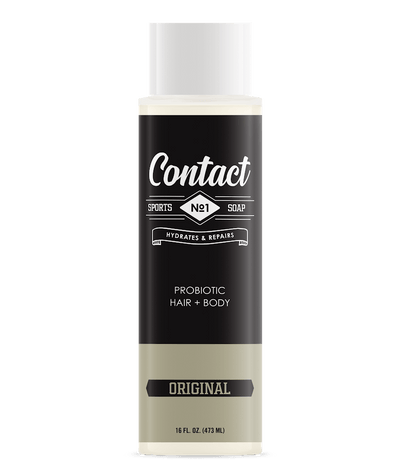
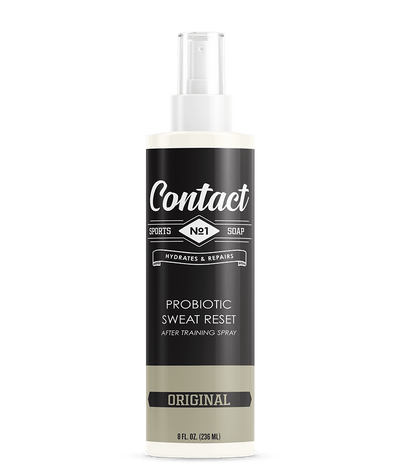
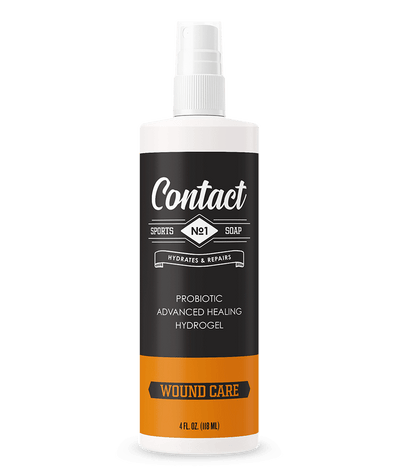
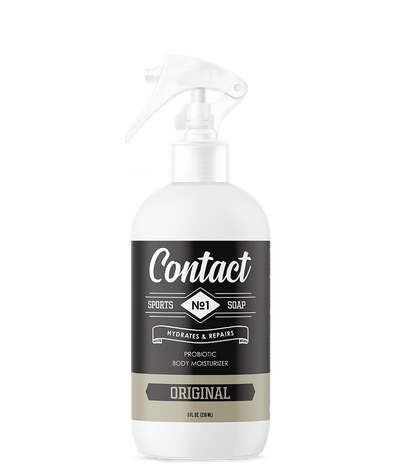
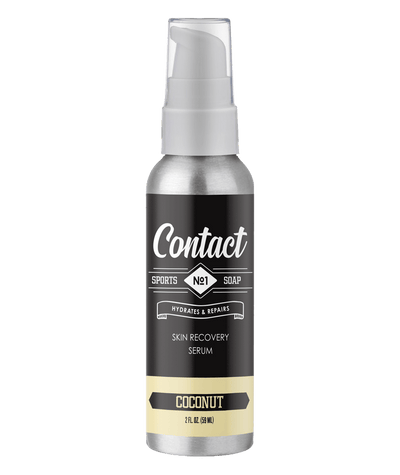


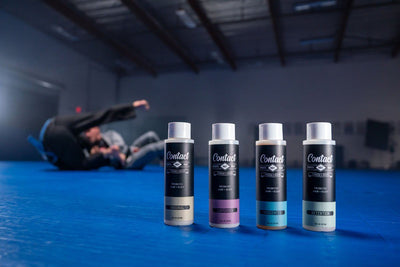

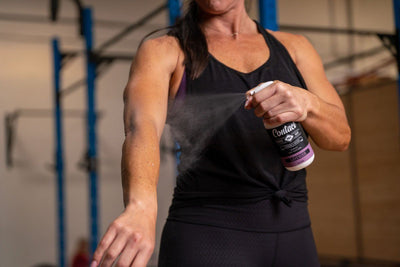
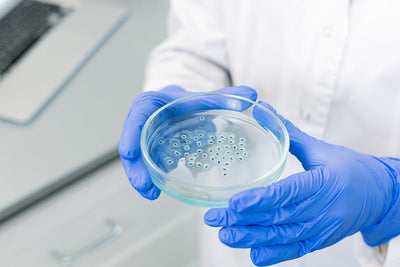
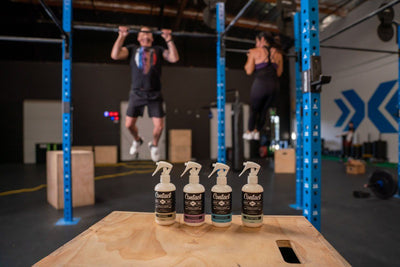
Leave a comment